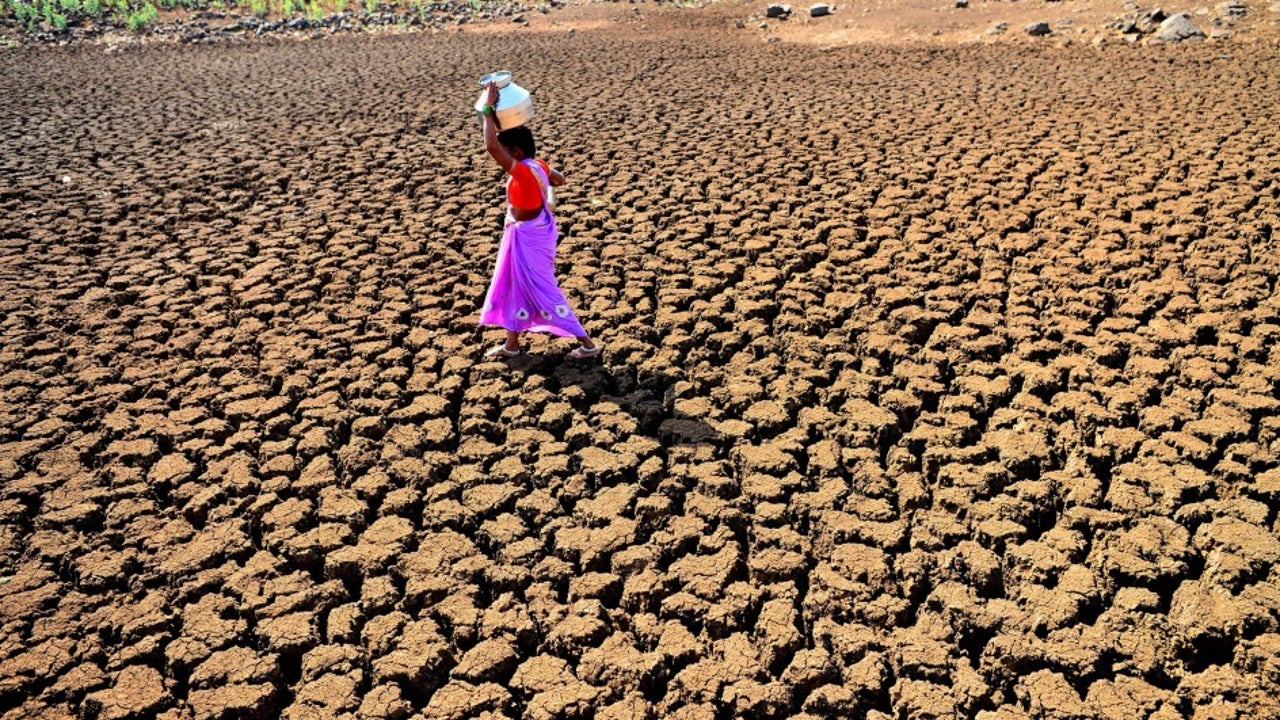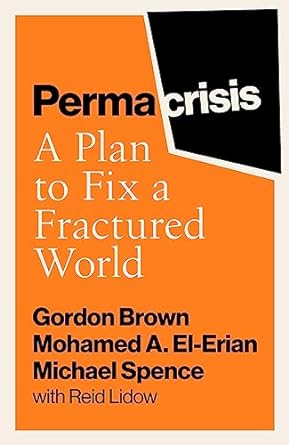
Reid Lidow is joining two of his three co-authors at a launch event for Permacrisis: A plan to fix a fractured world in Cambridge on Tuesday
Cambridge is an incubator of ideas and innovations, and those breakthroughs and that thinking are precisely what is needed to help us escape today’s permacrisis.
Reid Lidow
Artificial intelligence gets a lot of bad press, but if harnessed correctly has the ability to create jobs and drive growth through enhancing productivity and helping countries level up, according to a new book by some of the world’s leading thinkers.
The book, Permacrisis: A Plan to Fix a Fractured World, explores pressing global issues from AI to the reform of humanitarian aid funding and inflation targeting.
It is co-authored by the former UK Prime Minister Gordon Brown, Queens’ College Cambridge President Mohamed El-Erian, economist, Nobel Laureate Michael Spence, and Gates Cambridge Scholar Reid Lidow [2014], a former Executive Officer to the Mayor of Los Angeles.
The book, which publishes on 28th September by Simon & Schuster, will enjoy a week of launch events in the UK next week, including an event in Cambridge with some of the authors*.
Reid has worked with Gordon Brown since graduating from Cambridge in 2015 with a master’s in Development Studies, initially on the International Commission on Financing Global Education Opportunity which Brown chaired. After Reid moved to Los Angeles to work with then-Mayor Eric Garcetti, Reid continued to speak and work regularly with Brown. “We talked through complex global affairs and about his humanitarian work as a UN special envoy,” says Reid.
After Reid left the mayor’s office and ran for election as City Controller in Los Angeles in 2022, Brown proposed the idea of collaborating on a book which would address the very challenging moment the world found itself in after years of turbulence, including the long tail of the Covid-19 pandemic.
A plan to fix a fractured world
Permacrisis: A Plan to Fix a Fractured World is the product of that collaboration with Spence, El-Erian and Brown. Each chapter is introduced with a story which illustrates the discussions which follow on growth, the global order, economic management and more. “At the end of the day, the best way you learn is through experience and anecdotes – and that spirit is at the heart of the book,” says Reid, adding that it was a privilege to work with three of the world’s foremost thinkers. “I deeply believe in continuing education,” he says. “I had three of the best instructors in the world talking about the most pressing challenges and putting forward a positive vision of how we can escape this permacrisis. It was a once-in-a-lifetime experience for which I am deeply grateful.”
 While the book covers a wide array of global issues, according to the authors there are three central themes fueling today’s permacrisis: broken approaches to growth, economic management, and international governance. While these approaches are fractured, they are not beyond repair. The book isn’t just an explanation of where the world has gone wrong, but offers a provocative plan to prevent crises and better manage the future for the benefit of the many and not the few.
While the book covers a wide array of global issues, according to the authors there are three central themes fueling today’s permacrisis: broken approaches to growth, economic management, and international governance. While these approaches are fractured, they are not beyond repair. The book isn’t just an explanation of where the world has gone wrong, but offers a provocative plan to prevent crises and better manage the future for the benefit of the many and not the few.
The recommendations embrace everything from reforming the way trade disagreements are handled, reimagining how funding for humanitarian emergencies is delivered, and resolving the growing fissures between the US and China. “If we change our approaches, we can escape the permacrisis,” says Reid. “But the clock is ticking, and we need to act fast and across all three fronts bringing together new models for growth, economic management and governance.”
The feedback for the book has been encouraging with positive comments from author and ex-CNN CEO Walter Isaacson and Sheryl Sandberg, former chief operating officer of Meta Platforms. Reid is hopeful that it will provoke discussions that lead to better outcomes.
He adds: “The reforms we offer are multiplicative, bringing exponential benefit, rather than isolated approaches. We are trying to present a positive, principled vision of the future. There is a lot to be nervous about, but even more cause to be hopeful.”
For Reid, it is important that one of the book’s launch week events is at Cambridge. “Cambridge is an incubator of ideas and innovations, and those breakthroughs and that thinking are precisely what is needed to help us escape today’s permacrisis,” he states.
*The El-Erian Institute is hosting a Fireside Chat between Michael Spence and Mohamed El-Erian on 26th September to mark the publication of ‘Permacrisis – A Plan to Fix a Fractured World‘. Find out more here.
**Picture credit: Racaille 1950, courtesy of Wikimedia Commons.












